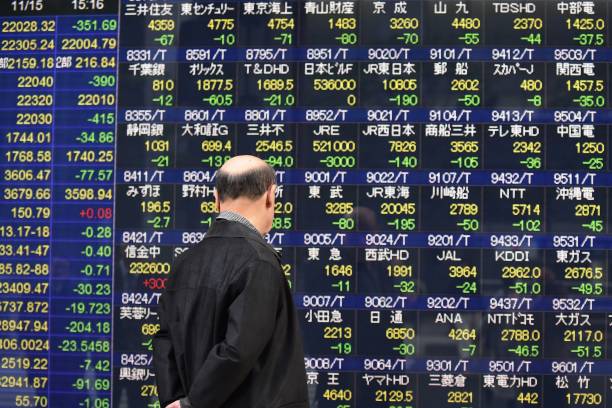FTSE 100 falls one per cent after Donald Trump trade comments

European stock markets have fallen today following President Donald Trump’s threat to raise tariffs on Chinese goods if no deal can be reached between the two sides, with the FTSE 100 leading the bunch downwards.
The FTSE 100 was down 1.09 per cent by 12.45pm UK time. In Germany, the Dax index was 0.70 per cent lower, while the European Euronext 100 was down 0.45 per cent.
Read more: Donald Trump defends China trade war but says a deal ‘close’
Meanwhile, the Japanese yen, a so-called safe-haven asset, was trading higher. The yield on the 10-year US Treasury bond was lower at 1.745 per cent, indicating investors had sold risk and bought safety.
In the UK, B&Q owner Kingfisher was the biggest faller on the FTSE 100, down 6.54 after suffering a sales slump. Insurance giant Aviva was 3.49 per cent lower after its planned shakeup underwhelmed investors.
The overall market movements were largely driven by Trump’s comments, however. “If we don’t make a deal with China, I’ll just raise the tariffs even higher,” he told a cabinet meeting yesterday.
He said he had a good relationship with China, and said it was “moving along” on trade. But he said Beijing would have strike a deal “I like”.
Christin Tuxen, chief analyst at Danske Bank, called it a case of “here we go again”.
“These renewed strains come after news yesterday that the US and China were in possible final negotiations over how much tariffs should be rolled back,” he said.
Read more: Kingfisher’s new CEO blasts ‘disappointing’ like-for-like sales slump
Chris Beauchamp, chief market analyst at trading platform IG, said: “The early gains of Tuesday’s session for European markets are a distant memory, having turned to dust during the afternoon.
“Today has seen those losses continue, reinforcing the short-term negative view.” Yet he added: “For now it is definitely in the ‘pause’ category rather than the beginning of something much more substantial.”
Another difficulty for trade talks was created yesterday when the US Senate passed a bill that requires a guarantee of Hong Kong’s autonomy and warned China against suppressing protesters violently.
“The US backing of Hong Kong demonstrators fuelled Chinese anger and officials called upon the US to stop interfering with internal Chinese affairs,” said Tuxen.
Read more: US condemns ‘unjustified use of force’ in Hong Kong after night of violence
Yet Mark Haefele, chief investment officer at UBS Global Wealth Management, said he still thought a “phase one” deal would soon be reached.
“The initial agreement would likely include a resolution of less critical issues such as China’s purchases of US agricultural products and opening up of its financial services sector, as well as improving the transparency of its currency regime.”
(Image credit: Getty)